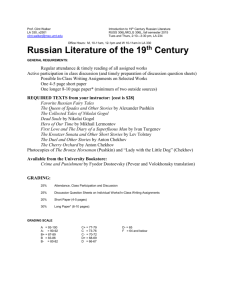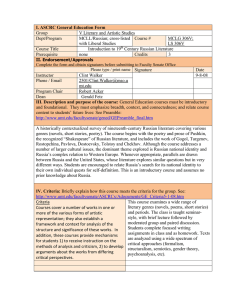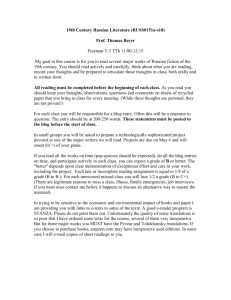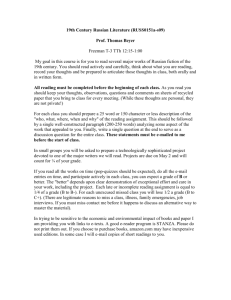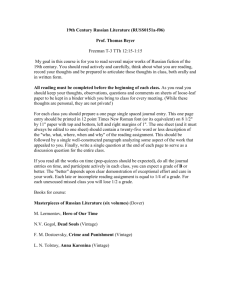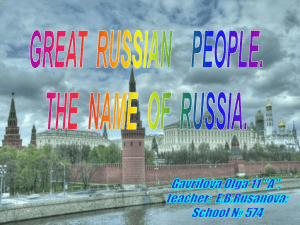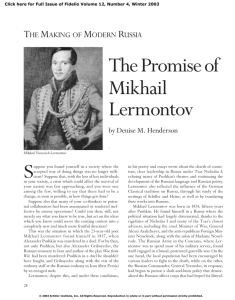8704,"the fatalist short story",3,,,50,http://www.123helpme.com/the-fatalist-preview.asp?id=216847,5,29200,"2015-12-24 16:10:27"
advertisement
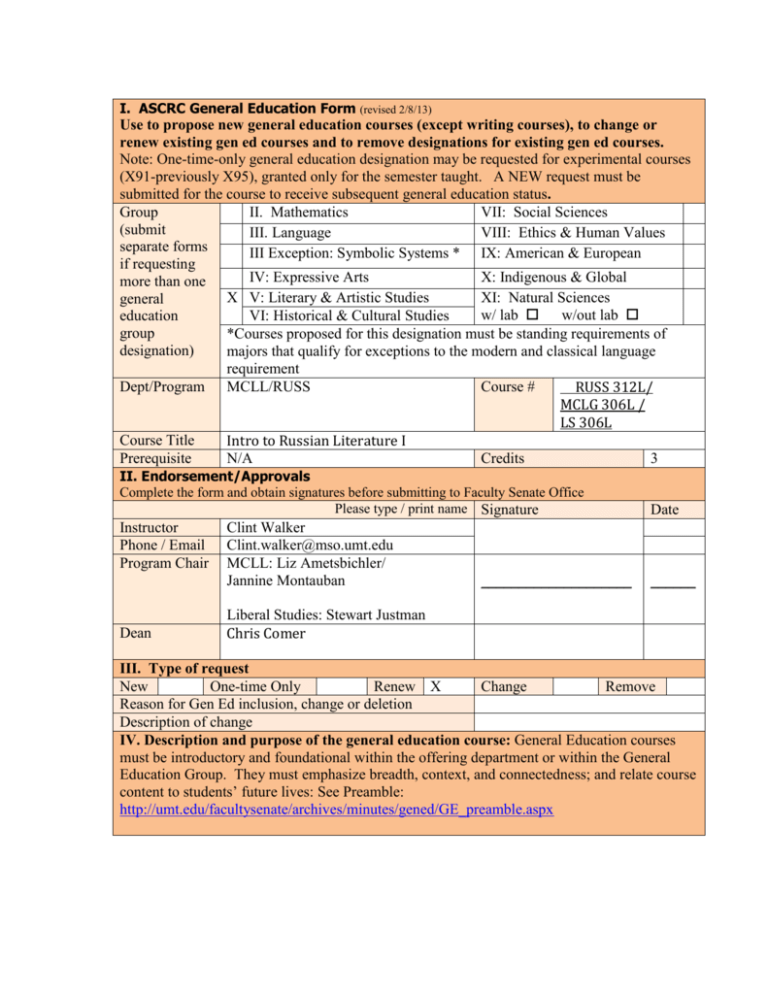
I. ASCRC General Education Form (revised 2/8/13) Use to propose new general education courses (except writing courses), to change or renew existing gen ed courses and to remove designations for existing gen ed courses. Note: One-time-only general education designation may be requested for experimental courses (X91-previously X95), granted only for the semester taught. A NEW request must be submitted for the course to receive subsequent general education status. Group II. Mathematics VII: Social Sciences (submit III. Language VIII: Ethics & Human Values separate forms III Exception: Symbolic Systems * IX: American & European if requesting IV: Expressive Arts X: Indigenous & Global more than one X V: Literary & Artistic Studies XI: Natural Sciences general w/ lab w/out lab education VI: Historical & Cultural Studies group *Courses proposed for this designation must be standing requirements of designation) majors that qualify for exceptions to the modern and classical language requirement Dept/Program MCLL/RUSS Course # RUSS 312L/ MCLG 306L / LS 306L Course Title Intro to Russian Literature I Prerequisite N/A Credits 3 II. Endorsement/Approvals Complete the form and obtain signatures before submitting to Faculty Senate Office Please type / print name Signature Instructor Phone / Email Program Chair Dean Clint Walker Clint.walker@mso.umt.edu MCLL: Liz Ametsbichler/ Jannine Montauban ____________________ Date ______ Liberal Studies: Stewart Justman Chris Comer III. Type of request New One-time Only Renew X Change Remove Reason for Gen Ed inclusion, change or deletion Description of change IV. Description and purpose of the general education course: General Education courses must be introductory and foundational within the offering department or within the General Education Group. They must emphasize breadth, context, and connectedness; and relate course content to students’ future lives: See Preamble: http://umt.edu/facultysenate/archives/minutes/gened/GE_preamble.aspx A historically contextualized survey of nineteenth-century Russian literature covering various genres (novels, short stories, poetry). The course begins with the poetry and prose of Pushkin, the recognized “Shakespeare” of Russian literature, and includes the work of Gogol, Turgenev, Rostopchina, Pavlova, Dostoevsky, Tolstoy and Chekhov. Although the course addresses a number of larger cultural issues, the dominant theme explored is Russian national identity and Russia’s complex relation to Western Europe. Whenever appropriate, parallels are drawn between Russia and the United States, whose literature еxplores similar questions but in very different ways. Students are encouraged to relate Russia’s search for its national identity to their own individual quests for self-definition. This is an introductory course and assumes no prior knowledge about Russia. V. Criteria: Briefly explain how this course meets the criteria for the group. See: http://umt.edu/facultysenate/documents/forms/GE_Criteria5-1-08.aspx This course examines a wide range of literary genres (novels, poems, short stories) and periods. The class is taught seminarstyle, with brief lecture followed by moderated group and paired discussion. Students complete focused writing assignments in class and as homework. Texts are analyzed using a wide spectrum of critical approaches (formalism, structuralism, semiotics, gender theory, psychoanalysis, etc). VI. Student Learning Goals: Briefly explain how this course will meet the applicable learning goals. See: http://umt.edu/facultysenate/documents/forms/GE_Criteria5-1-08.aspx Students analyze works in a number of literary periods (sentimentalism, romanticism, realism, nascent modernism) using a wide range of critical approaches, from formalism and semiotics to deconstruction and gender studies. Particular emphasis is placed on reading the text in its historical and cultural context in order to develop and support arguments more convincingly. VII. Justification: Normally, general education courses will not carry pre-requisites, will carry at least 3 credits, and will be numbered at the 100-200 level. If the course has more than one pre-requisite, carries fewer than three credits, or is upper division (numbered above the 200 level), provide rationale for exception(s). VIII. Syllabus: Paste syllabus below or attach and send digital copy with form. The syllabus should clearly describe how the above criteria are satisfied. For assistance on syllabus preparation see: http://teaching.berkeley.edu/bgd/syllabus.html Prof. Clint Walker Literature LA 330, x2501 clint.walker@mso.umt.edu Introduction to 19th Century Russian RUSS 312L/MCLG 306L/LS 306L Tues and Thurs, 2:10—3:30 pm, LA 342 Office Hours: M, W 10-11am, Th 12-1pm LA330 Russian Literature of the 19th Century COURSE DESCRIPTION: A historically contextualized survey of nineteenth-century Russian literature covering various genres (novels, short stories, poetry). The course begins with the poetry and prose of Pushkin, the recognized “Shakespeare” of Russian literature, and includes the work of Gogol, Turgenev, Rostopchina, Pavlova, Dostoevsky, Tolstoy and Chekhov. Although the course addresses a number of larger cultural issues, the dominant theme explored is Russian national identity and Russia’s complex relation to Western Europe. Whenever appropriate, parallels are drawn between Russia and the United States, whose literature еxplores similar questions but in very different ways. Students are encouraged to relate Russia’s search for its national identity to their own individual quests for self-definition. This is an introductory course and assumes no prior knowledge about Russia. STUDENT LEARNING GOALS: Students will be introduced to a number of literary periods (sentimentalism, romanticism, realism, nascent modernism) using a wide range of critical approaches, from formalism and semiotics to deconstruction and gender studies. Particular emphasis is placed on reading the text in its historical and cultural context in order to develop and support arguments more convincingly. GENERAL REQUIREMENTS: Regular attendance and timely reading of all assigned works. Active participation in class discussion. Two in-class response papers (1-2 pages, handwritten) One 4-5 page short paper Midterm One longer 8-10 page paper* (minimum of two outside sources) REQUIRED TEXTS: Available from your instructor: [$29 for six books and coursepack] St. Petersburg: Knopf Guides $3.25 Literary Russia: A Guide by Rosamund Bartlett $6.25 Dead Souls by Nikolai Gogol $3 Hero of Our Time by Mikhail Lermontov $3 The Gambler, Bobok and A Nasty Story by Fyodor Dostoevsky $6.25 Stories by Anton Chekhov. Trans. Pevear and Volokhonsky $5.25 Coursepack (“Queen of Spades,” “Nevsky Prospect,” “The Nose”) $2 Available in the bookstore: The Portable Nineteenth-Century Russian Reader Ed. George Gibian. GRADING: 25% Attendance, Class Participation, In-class Response Papers 25% Midterm 20% Short Paper (4-5 pages) 30% Long Paper* (8-10 pages): GRADING SCALE A = 93-100 A- = 90-92 B+ = 87-89 B = 83-86 B- = 80-82 C+ = 77-79 C = 73-76 C- = 70-72 D+ = 68-69 D = 66-67 D- = 65 F = 64 and below PAPER GUIDELINES: All papers should be typed or done on a computer. Respect your work—give each paper a title and include your name and the date! Use a standard 12 point font (Times New Roman recommended) and double-space. Proofread each assignment for typos, poor wording, mechanics, etc. Late work will be penalized one letter grade per day. Plagiarism will not be tolerated in any form. Please ask if you have a question about what constitutes plagiarism, but on the whole, if you consult another work for ideas, copy or paraphrase from another source, etc., then you need to acknowledge the source (including the work you consulted and the page number/s) in your paper with a footnote. IN-CLASS RESPONSE PAPERS: Two times during the course of the semester you will be asked to write short in-class response papers based on the reading for the day. You will be given a choice of at least two topics and will have about ten minutes to write on one of them. You may use your books and notes for reference, but no extra time will be given. If you have done the reading, ten minutes will be plenty of time to respond to one of the topics. The response papers will be graded on a scale of 1-10, with ten being the highest possible grade. NB – If you miss class the day of an in-class response, you will get no credit for that day’s response. Class attendance counts for part of your class grade, and the in-class response papers are intended to emphasize this fact and to reward those who come to class and keep up with the reading assignments. CLASSROOM ETIQUETTE: It is essential to the learning process that students treat each other and the instructor with respect. Under the Student Conduct Code, students who are found to be disruptive may be asked to leave the classroom. Disruptive behaviors may include but are not limited to: Using electronic communication devices, including cell phones and laptops for purposes unrelated to ongoing class activities. Carrying on side conversations that are distracting to the instructor and other students. Verbally interrupting the class with comments or questions not relevant to the course or to the current discussion. Failure to participate in assigned group activities. Significantly interfering with instructor’s work activities during or outside of class. The University of Montana assures equal access to instruction through collaboration between students with disabilities, instructors, and Disability Services for Students (DSS). If you think you may have a disability adversely affecting your academic performance and you have not already registered with DSS, please contact DSS in Lommasson 154. I will be glad to work with you and DSS to provide an appropriate accommodation. Syllabus August Tues, 27 Introduction, Discussion of Syllabus Peter the Great and Russian Culture Founding of St. Petersburg Read: Intro on Pushkin and “The Shot” (in Portable 19th-Century RR, pp. 1-4, 22-33) Thurs 29 Petersburg, Pushkin and the Flowering of Russian Literature Pushkin: Biography and Lyrics Discussion of lyrics and “The Shot” Read: 1) Pushkin: The Bronze Horseman (in Portable 19th-Century RR, pp. 8-21) 2) St. Petersburg: Knopf Guides, pp. 30-31, 38-39, 78-87, 114-118, 190-195 3) Literary Russia, pp. 288-290 September Tues 3 Pushkin: The Bronze Horseman Read: Pushkin, “The Queen of Spades” (coursepack) Thurs 5 Pushkin: “The Queen of Spades” Read: 1) Gogol, “Nevsky Prospect” (coursepack) 2) St. Petersburg: Knopf Guides, pp. 212-223 3) Literary Russia, pp. 265-266 Tues 10 Gogol, “Nevsky Prospect” Read: 1) Gogol, “The Nose” (coursepack) 2) Literary Russia, pp. 307-308 Thurs 12 Gogol, “The Nose” Read: Gogol, “The Overcoat” (in Portable 19th-Century RR, pp. 202-232) Tues 17 Gogol, “The Overcoat” Read Gogol, Dead Souls, Chaps I-V, pp. 5-97 Thurs 19 Gogol, Dead Souls Read Gogol, Dead Souls, Chaps VI-end of Part I, pp. 97-186 Tues 24 Gogol, Dead Souls Read Gogol, Dead Souls, all of Part II, pp. 187-292 Thurs 26 Gogol, Dead Souls HW: Begin working on your short paper that is due on Oct 3 October Tues 1 Gogol, Dead Souls (overview of entire novel) Read: Lermontov and Rostopchina lyrics and note that the Short Paper is due on Thursday, Oct 3 Thurs 3 work Souls Short Paper (4-5 pp) Due Today: Close analysis of a short or close analysis of one chapter from Gogol’s Dead Lecture: Lermontov Bio and Overview of his Work Lermontov and Rostopchina lyrics Read: 1) Lermontov, Hero of Our Time, all of Part I (through “Taman”) 2) Literary Russia, pp. 425-435 Tues 8 Lermontov, Hero of Our Time (discussion of all of Part I) Read: Lermontov, Hero of Our Time (“Princess Mary”) Thurs 10 Lermontov, Hero of Our Time (discussion of “Princess Mary”) Read: Lermontov, Hero of Our Time (to the end of the novel) Tues 15 Thurs 17 Lermontov, Hero of Our Time (“The Fatalist” and Overview) Midterm Exam (Pushkin through Lermontov) Read: Turgenev, “First Love” (in Portable 19th-Century RR, pp. 334-390) Tues 22 Turgenev, “First Love” (in Portable 19th-Century RR) Read: No homework today – take a night off! Thurs 24 Lecture and Video: Dostoevsky Biography Tues Dostoevsky, The Gambler, chaps I-VIII 29 Thurs 31 Dostoevsky, The Gambler, chaps IX-XIII November Tues 5 Dostoevsky, The Gambler, chaps XIV-End Thurs 7 Lecture and Video: Tolstoy Biography We will begin “The Death of Ivan Ilych” in class today (in Portable 19th-Century RR, pp. 437-489) Tues Tolstoy, “The Death of Ivan Ilych” (in Portable 19th-Century RR) 12 Thurs 14 Chekhov, “Anyuta,” “The Darling” (in Stories) Tues Chekhov, “Rothschild’s Fiddle,” “Man in a Case” 19 One-page outline of Long Paper Due Today Thurs 21 NO CLASS – Professor Walker at ASEEES Tues Chekhov, “Ward No. 6” 26 Thurs 28 NO CLASS -- THANKSGIVING BREAK December Tues 3 Thurs 5 Chekhov, “Anna on the Neck,” “The Lady with the Little Dog” Chekhov, “In the Ravine” Your long paper for this course will be due on Tues., Dec 10 by 5pm (in LA 330). Please note: Approved general education changes will take effect next fall. General education instructors will be expected to provide sample assessment items and corresponding responses to the Assessment Advisory Committee.
